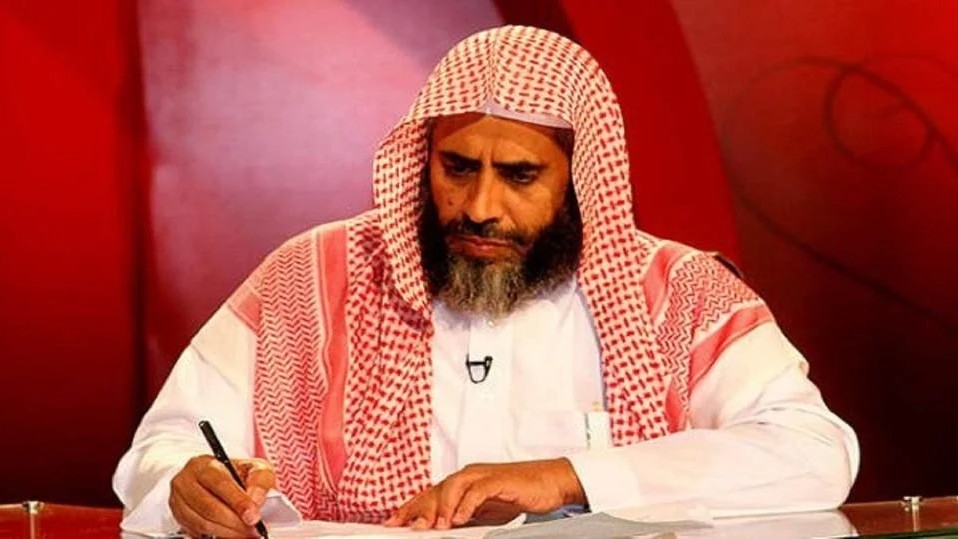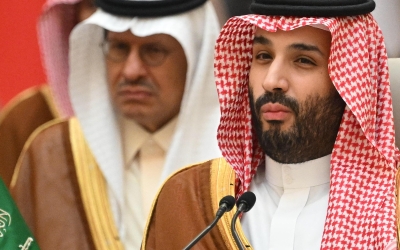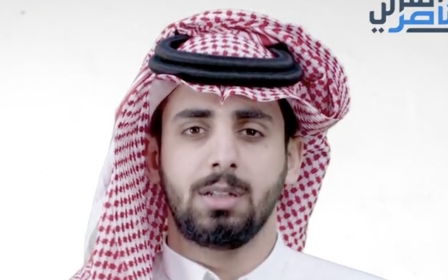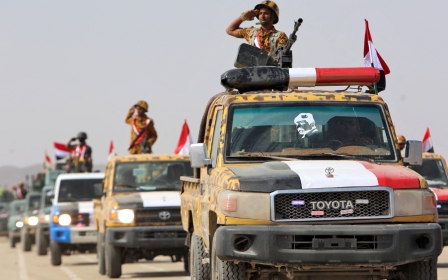Saudi Arabia: Awad al-Qarni's home looked like a 'battlefield' during his arrest, says son

Nasser al-Qarni, the son of prominent detained Saudi Arabian preacher Awad al-Qarni, has detailed the violent arrest of his father five years ago in a newly released video.
Nasser, an industrial engineer, revealed to Bloomberg earlier this week that he had fled the Gulf kingdom and applied for asylum in the UK, after Saudi officials threatened him with jail or execution if he spoke out about his father.
Awad al-Qarni is a prominent preacher who taught at Saudi Arabia's Imam Mohammad Ibn Saud Islamic University and King Khalid University, and appeared on numerous television shows.
He was arrested in 2017 along with a number of other religious figures, journalists, academics and activists, including Ali al-Omari and Salman Odah.
'Guns were pulled on my mother, brothers and everyone in the house'
- Awad al-Qarni's son
On Wednesday, his exiled son published a video on Twitter describing the circumstances around the arrest.
He explained that after sunset on 9 September 2017, two cars pulled up outside his family home, and unknown individuals spoke through the intercom, claiming to be “guests from outside the area”.
“My father greeted them and went downstairs to welcome them,” he said. “The moment he opened the door they pounced on him and tried to break into the house in civilian clothes, but my father pushed them out and shut the door.”
Qarni said that minutes later, soldiers and emergency forces turned up in 30 heavily armed vehicles. They searched the house and confiscated all electronic devices, including those of the children and domestic workers.
“They tried to handcuff my father in front of his children. The children were searched, then they were locked in a small room and the sound of their crying pain[ed] everyone in the house.
“Guns were pulled on my mother, brothers and everyone in the house.”
House resembled a 'battlefield'
Nasser said that he and one of his brothers arrived outside the house shortly after, to what looked like a “battlefield”.
“More than 100 men armed with machine guns and pistols. They were surrounding the house. We were forcibly prevented from entering the house.”
Qarni was eventually allowed into the house after three hours.
“They forcibly took my father and told us that he would be back in two days. And here we are now in October 2022 and our house is still missing my father.”
Qarni, Omari and Odah are independent scholars with a large following among Saudi Arabian and Arab youth.
In September 2018, Saudi Arabia's public prosecutor called for all three preachers to face the death penalty.
Since taking de-facto control of Saudi Arabia in the summer of 2017, Crown Prince Mohammed bin Salman has overseen a widespread crackdown on dissent, even as he pushed a number of nominally liberalising reforms.
Hundreds of people have been executed in recent years, with 120 executions carried out so far in 2022 alone. In March, the kingdom executed 81 men in its largest single mass execution in decades.
Saudi officials say the kingdom does not have political prisoners.
Middle East Eye propose une couverture et une analyse indépendantes et incomparables du Moyen-Orient, de l’Afrique du Nord et d’autres régions du monde. Pour en savoir plus sur la reprise de ce contenu et les frais qui s’appliquent, veuillez remplir ce formulaire [en anglais]. Pour en savoir plus sur MEE, cliquez ici [en anglais].





